Description
Name in North American Boletes: Boletus rubropunctus
Genus: Hemileccinum
- Genus 2: Leccinum
- Genus 3: Boletus
Species: rubropunctum
- Species 2: rubropunctus
Common Name: “Ashtray Bolete”
Tells: Smallish (<3″) liver- to red-brown cap is usually furrowed or wrinkled. Usually has an unpleasant “ash tray” smell, but not always. Buff-yellow stem w/oft-raised reddish dots/spots. Yellowish flesh DNS.
Other Information: Bright yellow pores age to brownish yellow and DNS. The cap can be viscid, can be smooth on some rare specimens, and usually displays a cream-colored ring if you look straight down on a younger specimen. “Rubropunctum” refers to the red (“rubro”) punctae on the stem, which are reliable but can wash off to the confusion of all involved. The stem often has a yellow band toward the top, can have a whitish bloom (especially on young specimens), and is often quite long and/or sharply curved at the bottom. Yellowish flesh DNS, but may discolor red and will have reddish bug holes.
Science Notes: DNA testing moved this mushroom from Boletus to Leccinum to Hemileccinum.
Edibility: Edible but supposed to taste “unpleasant”.
CHEMICAL TESTS:
- NH4OH (Ammonia): Cap skin turns amber. Flesh briefly flashes blue-green.
- KOH: Cap skin turns amber. Flesh turns orange.
- FeSO4 (Iron Salts): Cap skin turns pale olive. Flesh turns grayish olive.
Links:
 |
0 |  |
0 |  |
154 |  |
261 |


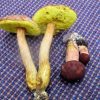


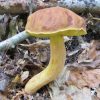

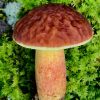
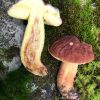
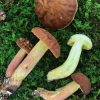
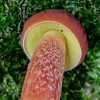
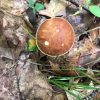
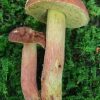
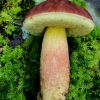
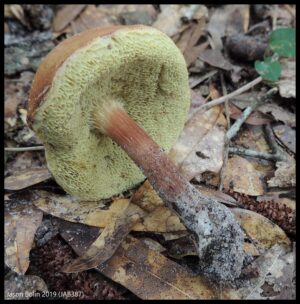
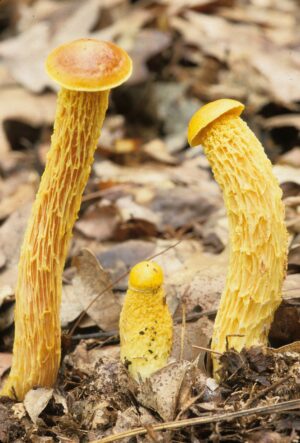
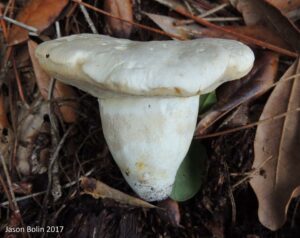
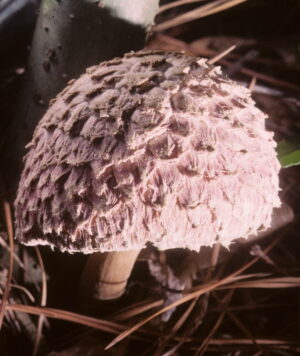
Got something to discuss?